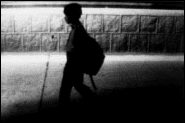|
|
|
監督:關錦鵬(スタンリー・クワン)
Director : Stanley Kwan |
1957年香港生まれ。香港バプティスト大学でコミュニケーションを学ぶ。当初俳優を目指すが助監督に転身、徐克(ツイ・ハーク)や許鞍華(アン・ホイ)、譚家明(パトリック・タム)の下で働く。1985年『女人心』で監督デビューし、まもなく香港ニューウェーブの代表的監督の一人として、特に女性の描写を得意として頭角を現す。1991年の監督作『ロアン・リンユイ/阮玲玉』はベルリン国際映画祭主演女優賞を獲得。 Born in Hong Kong in 1957. Studied communication at the Baptist College of Hong Kong. First sought a career as an actor, then moved on to work as assistant director for Tshui Hark, Ann Hui and Patrick Tam. Directed his first feature Women in 1985, and quickly established himself as one of the leading filmmakers of Hong Kong's new wave, especially as a women's director. In 1991, his film Actress, a half-documentary, half-fictional portrayal of silent film diva Ruan Ling Yu, won the best actress award at the Berlin Film Festival. |
 |
|
|
監督のことば 香港では我々みんなが、ここ数年の“1997年問題”をめぐる質問にうんざりしてきている。あらゆる期待、あらゆる恐怖や妄想が語られ、あらゆる予測が立てられてきた。ついに政権委譲が実現してしまった今、我々に出来るのは次に何が起こるのかを待つことだけだ。 このドキュメンタリーは英国統治の最後の数ヵ月間に作ったのだが、私は中国支配下の新しい香港ではなく、私自身が育った香港を振り返ることを選んだ。いくつかの意味で、この映画は私の以前のドキュメンタリー『男生女相』で始めたことを引き継いでいるし、またダニー・ユンの演劇プロジェクト『中国旅程97』のために書いた短編戯曲とも深い関係がある。このすべての活動が、私自身の少年時代の記憶に根差している―貧しい一家に生まれた経験、両親への感情、自分のセクシャリティを自覚したこと。その契機は、粤劇の伝統に私が深い共感を覚えたことだ―特に『Princess Chang Ping』という劇中のクライマックスの名台詞「私は拒否する、私は拒否する、でも最後には拒否しきれない」は、私自身のことだけでなく、香港の人々全員を表わしているように思える。 |
Director's Statement All of us in Hong Kong have grown tired of questions about the "1997 issue " in recent years. All the expectations, all the fears and paranoias have been voiced; all the speculations have been made. Now that the hand-over has happened, all we can do is wait and see what happens next. I made this documentary during the final months of British rule, and chose to look back at the Hong Kong I grew up in rather than forward to the future under China's sovereignty. In some ways, this film carries on what I began in my previous documentary Yang and Ying: Gender in Chinese Cinema; it also has a close relationship with the short play I created for Danny Yung's "Journey to the East 1997 " theatre project. All of these projects are rooted in my own memories from childhood: my experience of growing up in a poor family, my feelings towards my parents, my discovery of my own sexual orientation. The touchstone is my deep identification with the local tradition of Cantonese opera, and particulary with the opera Princess Chang Ping, in which the climactic line "I deny, I deny, but in the end I can not deny " has resonances not only for me personally but also for all Hong Kong people. |
